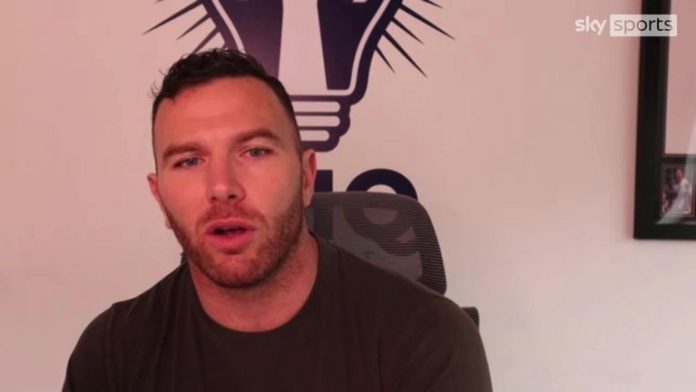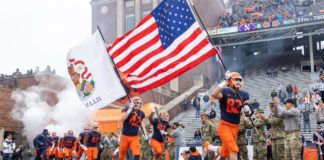Hirst, the first British professional rugby league player to come out as gay, is reversing his decision to retire and will be pulling on his boots again for hometown club Batley Bulldogs; the 34-year-old spoke to Sky Sports News about striving for greater inclusivity in the sport
By Marc Bazeley
Last Updated: 02/08/22 12:43pm
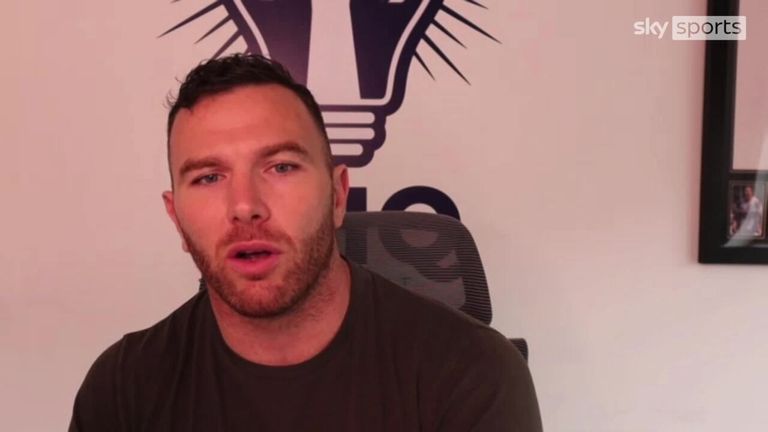
Keegan Hirst is aiming to do his part for increasing representation in rugby league after announcing he has reversed his decision to retire from playing.
Hirst became the first British professional rugby league player to come out as gay when he did so in 2015 but hung up his boots two years ago after admitting he had become disillusioned while all playing activity below the Betfred Super League was suspended during the Covid-19 pandemic.
The 34-year-old prop has had a change of heart though and will be returning to action with hometown club Batley Bulldogs in the Betfred Championship after 18 months out of the game, and believes he has plenty still to give both on and off the field.
“It’s easy to sit and talk about it, but I’ve got the opportunity to get my boots on and do something about it for there to be some representation,” Hirst told Sky Sports News. “I just figured I’d get the old rainbow laces back out and throw a pigskin around for a little while longer.
“If I can be any kind of representative of rugby league and the sport I love which is diverse, which is inclusive and does want people to play, that is a big part of who I am and where I live – if we can showcase what we’re all about and I can help in some way doing that, then I’ll be more than happy for that to be my legacy.”
A big part of the inspiration for Hirst, who spent three seasons playing in Super League with Wakefield Trinity, to do his part for greater representation was the recent controversy in Australia around the Manly Sea Eagles shirt which featured rainbow bands as a symbol of inclusivity.
Seven Sea Eagles players boycotted the NRL match against Sydney Roosters, in which the shirt was worn, on religious and cultural grounds, although Manly owner Scott Penn has since confirmed they would be open to wearing the shirt in the future if consulted.
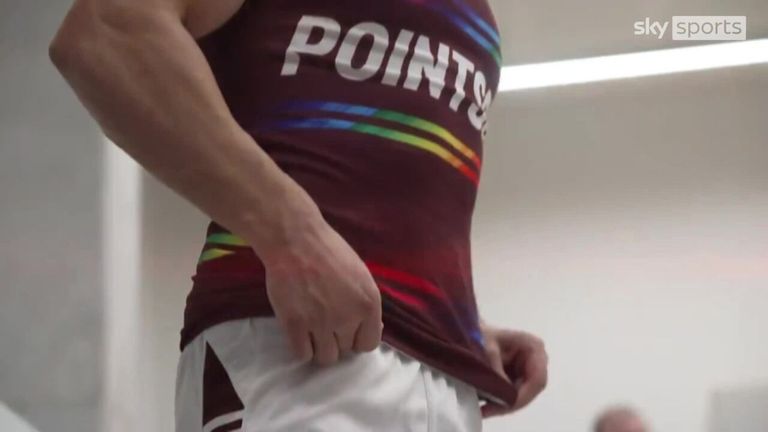
Hirst sees that in itself as a victory for inclusivity in rugby league and cited the England women’s football team as an example of why visible representation is important following their success in the Euro 2022 final.
“If the Manly players have said they are willing to do that, then I’d say happy days,” Hirst said. “That’s a victory for representation and inclusivity.
“Representation matters; we look at the Lionesses at the weekend going out and representing women and girls in sport. You had straight women and gay women in that team, and just look how much they brought the country together.
“Anyone who says sport and politics don’t go hand in hand, I implore them to go speak to a young girl who watched the Lionesses win at the weekend.
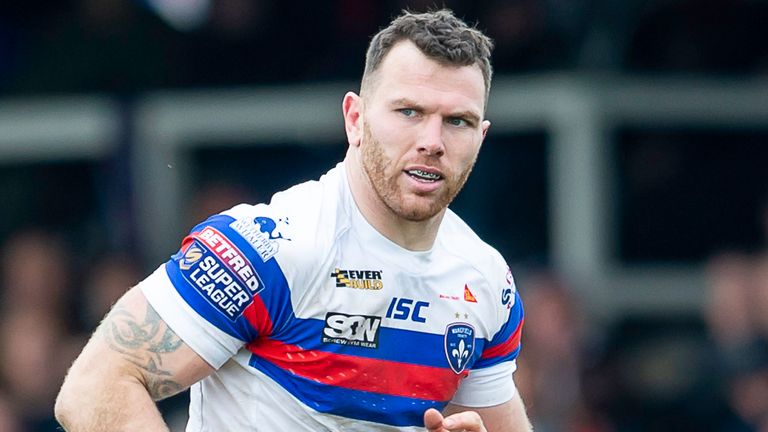

If I can be any kind of representative of rugby league and the sport I love which is diverse, which is inclusive and does want people to play, that is a big part of who I am and where I live – if we can showcase what we’re all about and I can help in some way doing that, then I’ll be more than happy for that to be my legacy.
Keegan Hirst
“It might seem like an innocuous thing to wear a rainbow on a shirt but seeing that representation and knowing you are welcomed is really, really important.”
But while he is pleased those Sea Eagles players are open to wearing the club’s pride shirt in the future, he does not believe it is something which teams should consult players over or that boycotts are the way to express any concerns.
“I don’t think you should be consulted on inclusivity,” Hirst said. “As a nice human being, who doesn’t want everyone to feel welcome at a sport? Why do we need to be consulted about that?
“I was never consulted about any sponsorships or anything which went on my shirt, the colours we used in it – it was just part of the game.
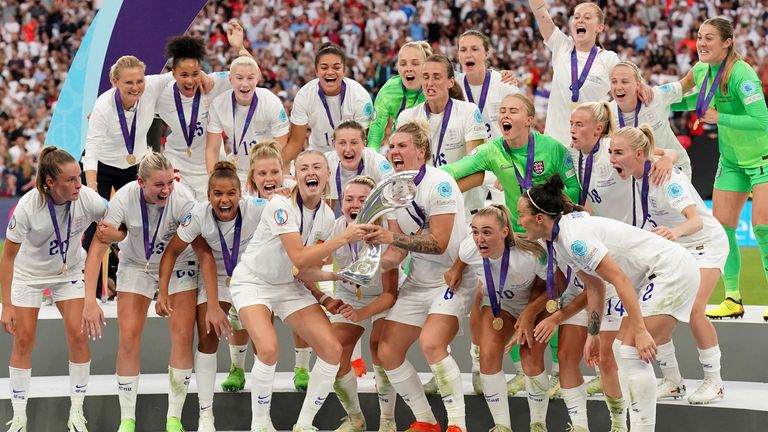

“As a professional athlete, if you have a genuine issue with something which is going on then go speak to the club about it and get it sorted out. You don’t just throw the teddy out and boycott playing, you’re paid to play – get out on the field and do your job.
“That’s never happened in the history of professional sport, so why would you start now and why is it we would draw the line at representation and inclusivity? Really, who doesn’t want that?”
Hirst’s playing return with Batley, currently fourth in the Championship as the season builds towards the play-offs, will be his third spell with the club in a career which has seen him play for Hunslet, Featherstone Rovers, Halifax Panthers and Heavy Woollen District rivals Dewsbury Rams too.
He is not the only high-profile openly-gay figure in the men’s game, with Super League referee James Child coming out publicly in February 2021, and hopes his return to playing can help show others there is a place for them in rugby league.
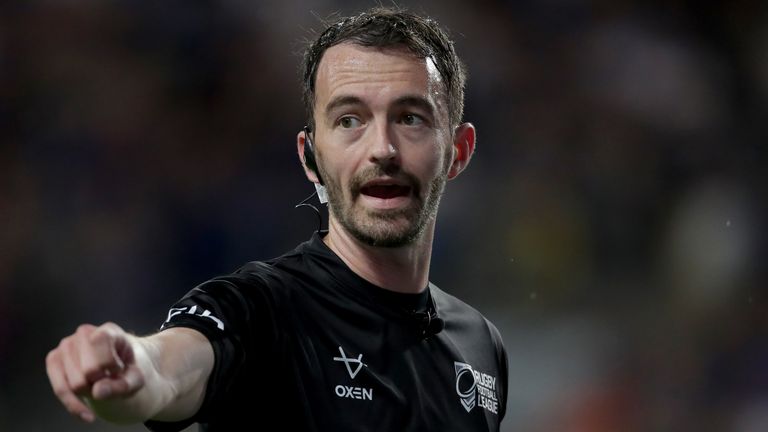

“Visibility is really important – if you can see it, you can be it,” Hirst said. “When I was growing up 11 or 12 years old playing rugby, there weren’t any out, gay rugby players.
“Maybe when I was starting to question my sexuality, if there had been and I thought ‘you can be a rugby player and be gay’, I would have joined the dots a lot easier – it wouldn’t have taken me until 27 to do it.
“Even if it just helps a couple of kids playing rugby be able to open up about it, if it’s people who want to get involved with rugby but don’t feel they can because they are gay – it covers a few different scenarios. If I can help in some very small manner, then I’ll be happy with that.”

